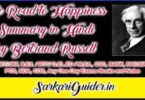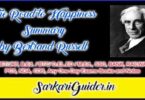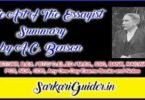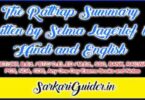Characteristics of Pope’s Poetry
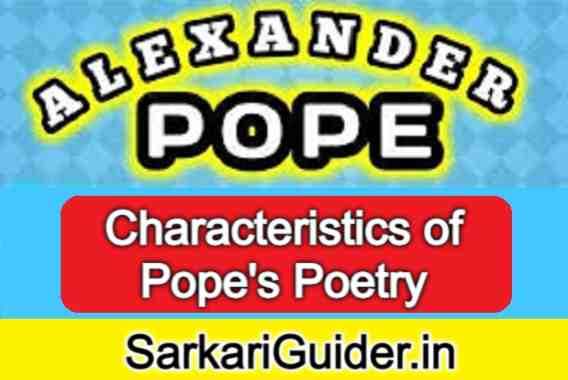
Characteristics of Pope’s Poetry
Characteristics of Pope’s Poetry
1. Qualities of the age of prose
2. Pope a classic of his age
3. The satirical element in Pope’s poetry
4. Correctness of his poetry
5. Pope as a writer of didactic verse
6. Use of poetic diction
7. Use of the heroic couplet
8. The Most quotable poet after Shakespeare
9. Final Estimate of Pope as a poet
1. Qualities of the age of prose :
The poets of the early 18th century were called neo-classical poets. The qualities developed by these ‘poets were the qualities of prose and not the qualities of true poetry. The chief characteristics of good prose are terseness, neatness, finish, condensation and elegance. Pope’s poetry contains these characteristics and, therefore, he is called a classic of prose and not a classic of poetry. But modern critics do not agree with this opinion. For example, Dr. F.R. Leavcis regards Pope as a poet of a high order and considers his contribution to English Poetry as valuable as that of Shelley or Keats.”
2. Pope a classic of his age :
A writer is called a classic if his work comes up to the level of a standard work. Pope was undoubtedly the greatest poet of his age. Therefore, it is quite appropriate to call him a classic of his age. But his classicism is not the classicism of Homer or Virgil; it is a classicism of its own kind. For this reason, it is designated as pseudo-classicism of the 18th century.
3. The satirical element in Pope’s poetry :
Pope was a born satirist. He delighted in writing satires and in the capacity of a satirist he occupies a high place among the poets of English literature. His satires are jovial when their subject is the manners of the high people of his age as in The Rape of the Lock. But they are scornful when common men are their subject as in ‘The Dunciad’ in which he is a mere lampooner. Dryden also was a satirist but his satires differed from those of Pope. Dryden upgraded his victims to make them laughable, while Pope degraded them in order to make them ridiculous. Another defect of his satires is that we frequently come across in them with lapses from good taste. Such lapses abound in ‘The Dunciad’. They are also often found in his attacks on his rivals. In several places in ‘The Dunciad’. We find the poet indulging in an outburst of personal malice.
4. Correctness of his poetry :
Pope had started his poetic career under the advice of the famous critic, Walsh, said to Pope “There was one way left of excelling; for though we had several great poets, we never had any one great poet that was correct, and desired me to make that my study and aim. The aim of Pope was the introduction of correctness and precision in his poetry. He devoted all his time and energy to attain correctness and finish in his poetry. He touched and retouched his verse till it became a perfect mosaic work. According to Dr. Johnson a page of Pope is like a velvet lawn, shaven by the seythe and levelled by the roller.”
5. Pope as a writer of didactic verse :
Pope believed that the aim of poetry is to teach people various things. With this aim in view he wrote his ‘Essay in Criticism’ Moral Essay and Essay on Man. His ‘Essay on Man’ is best known. Its purpose is to vindicate the ways of God to man. It is divided into four epistles in which the poet has discussed the relation of man to the universe, to himself, to society and to happiness, its central arguments is, ‘Whatever is, his right. Like the ‘Essay on man’ the ‘Moral Essays’ consist of four epistles addressed to four different friends. In them the author has discussed the characters of men and women, the use of riches and the necessity of good taste in life. In the ‘Essay on Criticism’ Pope has discussed the theory and practice of the neo-classical school of poetry. Its matter is instructive and its art is pleasing.
6. Use of poetic diction :
Poetic diction means noble, pure and exalted diction fit for use in poetry meant for refined and cultured audience. In it vulgar, archaic and technical words were avoided. Pope and other poets of the early 18th century used some devices to achieve poetic diction. The first device was to use Latin words and Latin constructions. Thus Pope used ‘Sol in place of ‘Sun’. The second device was to use peraphrasis or circumlocation or a roundabout way of saying things. Thus Pope uses velvet plain for a green table, two-handed engine for a pair of scissors and so on. The third device was to make an abundant use of figures of speech, specially of Hyperbole and Personification.
7. Use of the heroic couplet :
Couplet means a verse of two lines. It is like the ‘doha’ or ‘sortha’ of Hindi. The Heroic couplet consists of two lambic Pentametics rhyming together. It is called “heroic’ because it was usually used for epic verse in English celebrating heroic exploits. It was also used in descriptive and narrative poetry, dramas, polemics and satires. First of all, Chaucer introduced it in his ‘Canterbury Tales’. It was used by Dryden and Pope perfected it. He was unrivalled in the use of the heroic couplet. he made his lines epigrammatic. His heroic couplets are masterpieces of compactness.
8. The Most quotable poet after Shakespeare :
Pope pruned and polished his verses so much that many of his lines became quotable. Shakespeare is the most quotable poet. After him comes Pope. Some of his oft-quoted lines are : A little learning is a dangerous thing. ‘Fools rush in where angels fear to head’. ‘To err is human to forgive divine.’ What off was thought, but never so well expressed. The proper study of mankind is man’.
9. Final Estimate of Pope as a poet :
Pope occupies a controversial position, as a poet. Some people regard him as a very excellent poet. For example, Dr. Johnson said that if Pope was not a poet, where was poetry to be found. Similarly, Dr. F.R. Leavis and his followers consider Pope’s contribution to English poetry as valuable as that of Shelley or Keats or perhaps more than that. On the other hand, some people decry him and deny him poetic qualities of a higher. For example, Mathew Arnold held the views that Dryden and Pope were classics of English prose rather than the classics of English Poetry. A balanced view regarding Popes position will probably be that in spite all his linguistic and poetic qualities, he cannot be regarded as a first rate poet like Shakespeare, Wordsworth, Shelley and Keats, etc. He can occupy a position among the second rate poets.
Important Links
Metaphysical Poetry: Definition, Characteristics and John Donne as a Metaphysical Poet
John Donne as a Metaphysical Poet
Shakespeare’s Sonnet 116: (explained in hindi)
What is poetry? What are its main characteristics?
Debate- Meaning, Advantage & Limitations of Debate
Sarojini Naidu (1879-1949) Biography, Quotes, & Poem Indian Weavers
Charles Mackay: Poems Sympathy, summary & Quotes – Biography
William Shakespeare – Quotes, Plays & Wife – Biography
Ralph Waldo Emerson – Poems, Quotes & Books- Biography
What is a lyric and what are its main forms?


